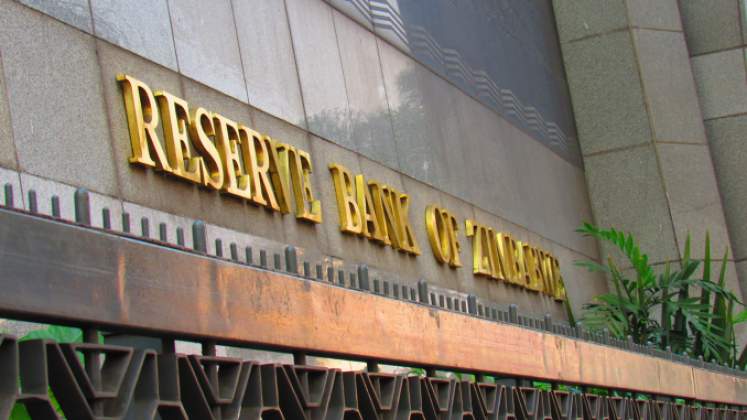Economists have said although the new structured currency in Zimbabwe may provide more saving options for citizens, it may not be the answer to the country’s hyperinflation because the root cause of the problem lies in the government’s manipulation of financial systems.
These sentiments come as the government plans to unveil a new structured currency this week that will account for about 20 percent of transactions, aiming to address currency fluctuations and the unstable exchange rate.
A structured currency is a form of monetary system designed to enhance stability and manage inflationary pressures, according to the finance minister, Prof Mthuli Ncube.
Unlike fiat currencies, which rely on government regulation and central bank policies, structured currency takes the form of both fiat and commodity-backed currencies
However, economists said the success of the structured currency hinges on the public perception and confidence that the new currency will command.
“Confidence is a key variable in currency success. As for the confidence in the financial system, Zimbabweans’ behaviour in interacting with this sector does not demonstrate a positive effect,” said Stevenson Dhlamini, an economist and lecturer at the National University of Science and Technology in Bulawayo in the Department of Banking and Economic Sciences
However, Dhlamini said existing structured alternative financial assets such as gold coins and ZiG have not shown instability, which is a positive sign that perhaps the new currency might be received in the same manner.
“Whether the structured currency will have a significant economic impact is too soon to say until we have full details as to its operationalisation,” said the lecturer.
Dhlamini also added that since the nature of a structured currency is to act as both a medium of exchange and an asset, ordinary people may have added options for savings.
“This means that if the structured currency is transparently implemented and with clear accountability measures, it is likely to lead to less commodification of the USD. This would mean that the ordinary Zimbabwean will have added options for value preservation and savings,” said the economist, emphasising that public perception and confidence in the new currency were key.
Another economic analyst, Future Msebele warned that as long as the currency was manipulated by ‘saboteurs,’ the new structured currency may not achieve its intended use.
“We have been here before and everyone knows exactly what will happen. The Reserve Bank (of Zimbabwe) cannot continue to repeat what has been giving us undesirable results and hope for better results this time around,” he said.
“We expect the new RBZ governor John Mushayavhanu, who has started on a wrong footing, to think out of the box.”
Msebele claimed the country needed to fully dollarise so that people have a more stable capital market.
“This will end the sudden capital outflows, and have a balance of payments less prone to crises.
We can only think of these bond notes and structured currencies when there is some form of economic stability,” said the analyst.
“However economic stability can not only be brought by changes in the monetary policy, (Prof) Mthuli’s fiscal policy must complement the monetary policy. Right now there is incoherence and disjointedness of monetary and fiscal policy measures.”
A Management of Business (MOB) teacher, Emmanuel Sibanda, said “the problem in Zimbabwe was the government and RBZ could not be trusted, which is why Zimbabweans were finding it hard to trust them now and the proposed currency.”
“Who can blame people for being sceptical? How many currencies have been introduced and failed to uplift the lives of ordinary people while the elite and politically connected benefit. Without such trust and confidence, people may avoid the structured currency, while those who stand to benefit from it will use it,” Sibanda said.
Adding to the debate, Bulawayo mayor, David Coltart, said the solution to hyperinflation and a weakening currency does not lie in replacing it with a new currency.
“The reason our present currency has performed so badly is because people do not trust the institution responsible for regulating it. The most important criterion in the running of any central bank is trust. Until trust is restored this new currency is doomed to fail as well,” said the mayor.
“Trust is only created when those running the central bank are recognised professionals who have been appointed because of their integrity and demonstrable skills, not who they know. Trust is only created when there is total transparency and the central bank is demonstrably being run for the benefit of all, not just a small ruling clique.”
Meanwhile, another anlayst, Qalani Nhliziyo said Zimbabwe’s economy is not ready for its own currency because “the country currently does not internally produce goods to be exchanged.
“Gold coins and ZiGs will end up suffering stiff regional competition and risk being treated as a commodity instead of a tangible currency,” he said.
The analyst noted that operationally and realistically, a currency should float on top of a sound ‘export system’ generating competitive corporate or national profitable returns.
“ Generally speaking, the currency must be a credible mode of exchange which transact on a vibrant industry manufacturing goods of value instead of a largely or predominantly consumerist economy,” Nhliziyo said.
He noted that every currency globally must have international acceptance, should be backed with value in its reserves which is more than its value, or should have a deposit of real precious metals like gold, diamonds and of late ounces of platinum.
“Some of the key factors of a real currency include: divisibility, acceptability (locally and internationally), portability, homogeneity, durability, scarcity and fungibility and store of value,” Nhliziyo stated.
These factors according to Nhliziyo are multifaceted terms derived from both Economics and Finance but the bottom line is “Zimbabwe is still a tiny and almost empty industrial economy and is not ready to have its own currency.”

